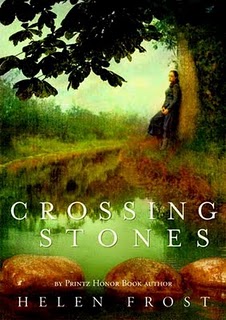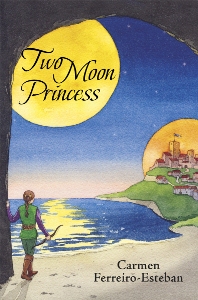Muriel Jorgensen is living a pretty ordinary life in late-1917 Michigan. She’s about to graduate from high school, and she’s not terribly thrilled with President Wilson’s decision to enter into World War I. Her friend (and possible beau) Frank has decided to join the army, to go serve in France. Then her younger brother Ollie sneaks away to join up also. What is Muriel to do, especially when she wants to do something, but everyone tells her that girls can’t do much of anything, except cook, clean, and have babies? Thankfully, there’s Aunt Vera and the suffrage movement to help Muriel figure things out.
That sounds trite, but this novel is anything but. Helen Frost has a way with words, yes — it’s a novel in verse, and Frost finds ways to do things with form that make the novel beautiful to look at as well as read — but it’s more than that. She’s written about a time in American history that I don’t think we talk about much anymore. There’s incredible relevance, though: the impact of war, both on the boys who served as well as their families and communities. It’s a very pacifist book; the implicit message is that there is no such thing as a “good” war. Or, at the very least, all war has negative consequences. Combined with that is Muriel’s desire to speak out against the war, to find a way to express her opinion, which is difficult, considering there was no outlet for women during that time. Enter the suffrage movement, and the impact that it had on this country (Women didn’t get the right to vote until 1920? Really? If I knew that, I’d forgotten.). There were brave women; not just the leaders of the movement, but the individuals out there trying to make a difference. But, most of all, this book is a moving story, powerful in its simplicity.
Another reason to really love novels in verse (and Helen Frost).
Rated: None




